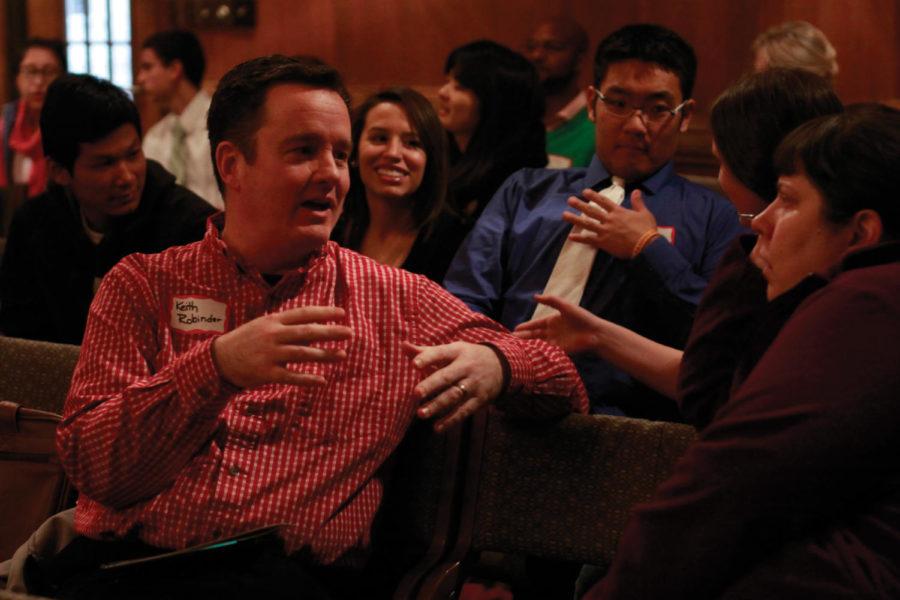ISCORE attendees take message that conference is ‘more than just 1 day’
March 2, 2012
“Awareness, an understanding, and then an opportunity to take what you’ve learned and share it with the community in an effort to make [Iowa State] a more inclusive environment,” is what Vice President of Student Affairs Tom Hill hopes that attendees got out of the Iowa State Conference on Race and Ethnicity.
In all, 713 students, staff, faculty and community members attended the conference.
ISCORE is “setting the platform for dialogue around race and ethnicity, and after 13 years, people look forward to it,” said Japannah Kellogg, program coordinator of the Student Support Services Program and co-chairman of ISCORE for the past eight years.
The Memorial Union hosted a variety of discussion-provoking forums proving that, although it may be subtle in some cases, racism and ethnicity issues still exist today. The Great Hall was lined with posters displaying different topics regarding race and ethnicity where Racquel Hopkins, freshman in biology, and Assata Caldwell, freshman in pre-integrated studio arts, could be found discussing the “Effects of Ableism in America.”
“If not something new, then something reinforced, and then bringing it back to their communities,” is what Caldwell wants her listeners to take from the conference.
“Hopefully it’s a domino effect,” Hopkins added.
Many attendees had some response to the sessions.
“Most people have the privilege not to care; they don’t have to care,” said Albert Li, freshman in pre-interior design.
“Internet media and issues with the Daily” are what brought Beth Fowler, junior in elementary education, to ISCORE. “People obviously already felt like they were being targeted, and [the ‘Just Sayin’ controversy] was the spark in the powder keg.”
Fowler said she is good friends with some of the students directly affected by the “Just Sayin'” remark and attended the conference to support them as well as learn for herself “how to make everyone comfortable here.”
“It shined the light on a bigger problem,” Hill said regarding the controversy. “It’s just a small piece of a smaller issue. The much bigger problem of diversity is inclusion in general.”
Kellogg questioned whether or not the newspaper was being mindful of all students. He noted, “the Internet makes it easy to put [racism] out there without ownership.”
The attendees and presenters of ISCORE agree that the “Just Sayin'” controversy arose at the perfect time to display that racism is existent and that this conference is well-needed to inform the ISU community.
“[ISCORE] is here only for a Friday,” said Tim Hall, graduate student in educational leadership and policy studies. “The real work happens after [the conference] in trying to sustain what was learned. “
Dan McCoy, senior in apparel, merchandising and design, said, “I thought I was just going to take notes for class, but surprisingly it’s hitting home more than I thought.”
He said he was realizing “the biggest thing is going out and being able to talk to people because without awareness, no one really knows anything.”
The average attendance for ISCORE is around 700 year after year.
As Kellogg stressed, the conference may occur on a single Friday every year, but “it’s more than just one day.”







